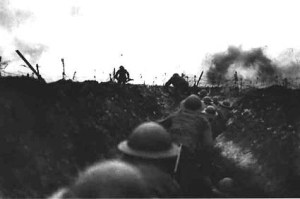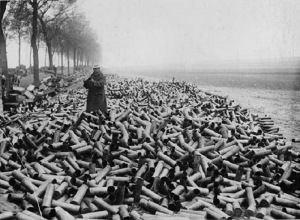I used to have a house in Rodanthe, on the windswept Outer Banks of North Carolina. It is a wild place. When you look out upon the ocean there you’re gazing upon the ‘Graveyard of The Atlantic’ where literally thousands of ships have gone down. The Outer Banks have been occupied for a few thousand years, starting with native American cultures around 500 AD (or CE or AO, or whatever term is comfortable to you) with the johnny-come-lately European settlers coming in in the 1580’s with the Lost Colony. But this is Christmas and I’d like to play with things I’ve run across in my mental wanderings concerning traditions of celebration of Rodanthe.
But first a little background.
Christmas day is the first day of the ‘Twelve days of Christmas’, with the ending known as the Epiphany. The precise day of the Epiphany and/or Twelfth Night depends upon the particular tradition. As they used to say in my old high school math books, more details of the particulars of the dates what is known as Christmastide is ‘left for the serious student’ and I recommend you consult Mr. Google. But the traditions themselves have many similarities to old English traditions, particularly old English dance traditions (specifically one performed at Abbots Bromley) and it’s these that I find interesting.

o There are horned creatures played by masked dancers – in Rodanthe it’s “Old Buck” the mythical bull. Old Buck is either touched as he’s led around by a masked handler (while causing silly chaos) or ridden for luck or fertility. At Abbots Bromley, it’s ‘horned dancers’ and dancer dressed as a hobby horse are intended to ensure a bountiful hunt.
o In Rodanthe there is a tradition of beginning the festivities with fifes and drums playing eerie music at the crack of dawn to awaken the natives and natives run around. At Abbots Bromley there is the slow approach of the dancers to eerie music.
o In Rodanthe in times past sometimes men would dress as women and women as men, rather like the English tradition of Pantomime. At Abbots Bromley in Staffordshire, Maid Marion of Robin Hood fame is represented by a man wearing a dress.
The origin of ‘Twelfth Night’ lies in the resistance of the British to adopt the Gregorian calendar, the last European nation to do so. It took them 170 years. When they finally did, to make up for the 11 days discrepancy between the true solar year (as reflected by the said Gregorian calendar) and the Julian calendar, Parliament decreed the dates of September 3 through September 13, 1752 simply didn’t exist. When the law took effect, Rodanthe was an isolated village whose residents were almost exclusively descendants of British settlers. It is unclear when they were told of the change in dates, but if so, the independently minded Outer Bankers chose to ignore it. Rodanthe is one of the few places in the United State that celebrates Old Christmas, or Twelfth Night. The people of Rodanthe mark Jesus’s birthday as January 6 (Twelfth Night) and thus celebrate “two Christmases.” Although there are no records of how the day was celebrated in the 18th century in the village, records of what happened on the Rodanthe Christmases dating to the early 1800s tell of celebrations that included food, general silly fun and a creature called Old Buck, the mythical bull.The legend describes Buck swimming ashore from a shipwreck, found the local cows to his liking and took up residence on Hatteras Island. Different stories tell that he was either shot and became part of a feast, or disappeared into the forests of the island, but either way, on Old Christmas his spirit reappears every year in the form of a bulls head with a cloth covered body as the costume. Celebrations including skulls and animal heads are not unique to Abbots Bromley and Rodanthe. An 1883 article published in the British journal Antiquarian Chronicle reports, “There is another custom very common in Cheshire called Old Hob; it consists of a man carrying a dead horse’s head, covered with a sheet, to frighten people.” From Wales, comes the midwinter tradition of Mari Lwyd, meaning gray mare in English.

Rodanthe was once called Chicamacomico, an Algonquian term meaning “sinking down sand.” The old name is appropriate, as frequent nor’easter storms and hurricanes occasionally punch inlets through the thin barrier islands, including a “hotspot” just north of Rodanthe. The beach once supported herds of rangy cattle standing udder-deep in the surf for relief from the heat and flies. The barrier islands were ideal for raising horses, cattle, and sheep because fencing was cost-prohibitive to early settlers, and the ocean served as a natural barrier. Young men astride banks ponies once drove sheep up and down the beach for their annual shearing. In 1935 the North Carolina General Assembly put a stop to all that fun by passing a law that banned free-range livestock on Hatteras Island out of concern that overgrazing led to a lack of vegetation, which led to increased erosion. But the legend of Old Buck remains.
As a small final point of interest, though it seldom happens any longer, one tradition of Rodanthe holds that if you have a gripe with someone you fight it out at Old Christmas, to start the new year with a black eye and a clean slate. A rough tradition, but one that seems to have a bit of sense to it. But whatever your tradition, whether it be singing carols, dancing with elk horns or just chilling out in the recliner in front of the television watching the modern incarnation of medieval joisting known as American style football (lady fairs on the sidelines, young men on the field of battle dressed in plastic armor trying to beat each other’s heads in, etc), please celebrate with joy and care, relax and look forward to the New Year.
Happy Holidaze, be safe.

























